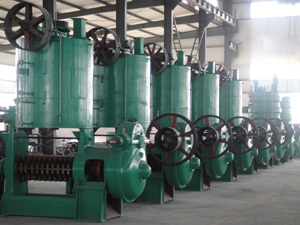
Peanut oil is a staple in many kitchens around the world, valued for its rich flavor and health benefits. But have you ever wondered how this golden liquid is made? Let's take a behind - the - scenes look at the production process of peanut oil, specifically the hot - pressing and cold - pressing methods.
The journey begins with the humble peanut. When peanuts arrive at the processing plant, they are still in their shells. Specialized shelling machines are used to remove the outer shells. These machines can handle large volumes of peanuts, ensuring an efficient start to the production process. For example, a modern shelling machine can process up to 5 tons of peanuts per hour.
After shelling, the peanuts need to be cleaned. Industrial peanut cleaning machines are employed to remove dirt, stones, and other impurities. These machines use a combination of sieves and air separation techniques. The cleaning process is crucial as it ensures the quality and purity of the final product. A well - designed cleaning machine can remove up to 99% of impurities.

There are two main methods of extracting peanut oil: hot - pressing and cold - pressing. Each method has its own unique characteristics.
In the hot - pressing process, the cleaned peanuts are first roasted at a high temperature, usually between 120°C - 180°C. This roasting step enhances the flavor of the oil, giving it a rich, nutty aroma. After roasting, the peanuts are crushed into small particles, which are then fed into a large - scale screw press. The high temperature during the pressing process helps to increase the oil yield. On average, the hot - pressing method can achieve an oil extraction rate of about 45% - 50%.
Cold - pressing, on the other hand, is a more gentle process. The peanuts are not roasted at high temperatures. Instead, they are crushed at a low temperature, usually below 60°C. This method preserves more of the natural nutrients and flavors of the peanuts. However, the oil yield is relatively lower, typically around 35% - 40%. But for those who value the natural properties of the oil, cold - pressed peanut oil is the preferred choice.

In the production of fragrant peanut oil, baking temperature plays a vital role. When the baking temperature is around 150°C, the Maillard reaction occurs in the peanuts, which creates the characteristic rich and fragrant flavor of the oil. However, if the temperature is too high, it may lead to the loss of some nutrients and the production of unwanted substances.
The crushing stage is also important for increasing the oil yield. By using advanced crushing equipment, the peanuts can be broken down into smaller particles, which allows for better oil extraction during the pressing process. Modern crushing machines can crush peanuts into particles of uniform size, ensuring an efficient and consistent oil extraction.
After the peanuts are crushed, they are sent to the oil press. The press applies pressure to the crushed peanuts, squeezing out the oil. The remaining solid part, known as the oil cake, can be further processed. It can be used as animal feed or as a raw material for other products, maximizing the utilization of the peanuts.

Let's look at some real - world examples. A large - scale peanut oil factory in the United States switched from a traditional pressing method to our advanced hot - pressing technology. As a result, their oil yield increased by 8%, and the flavor of their peanut oil was well - received in the market. Another factory in Europe adopted our cold - pressing technology and saw a significant increase in the sales of their high - end, natural peanut oil products.
Do you have questions about peanut oil production? Here are some common questions and answers:
| Question | Answer |
|---|---|
| Which type of peanut oil is healthier, hot - pressed or cold - pressed? | Cold - pressed peanut oil retains more natural nutrients, so it is generally considered healthier. However, hot - pressed peanut oil has a more intense flavor. |
| How long can peanut oil be stored? | Under proper storage conditions (cool, dark place), peanut oil can be stored for up to 1 - 2 years. |
The production of peanut oil is a complex and professional process. Our brand is committed to using the latest technology and strict quality control measures to ensure the highest quality of our peanut oil products. We invite you to experience the difference in our premium peanut oil. Contact us today to start your partnership and bring the best peanut oil to your market!

